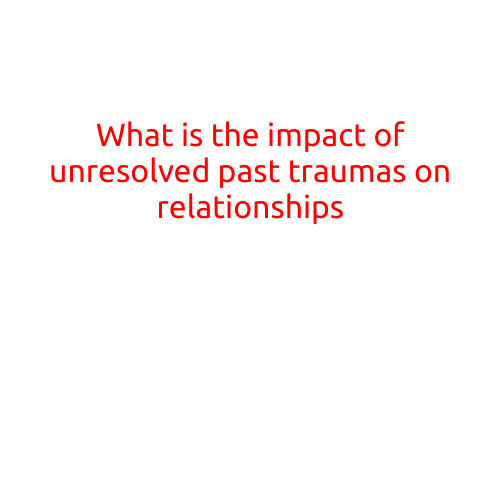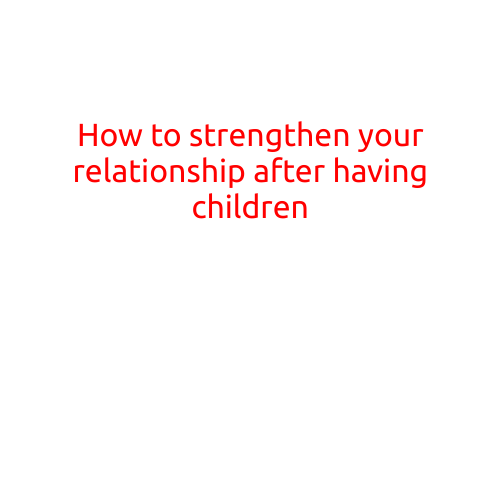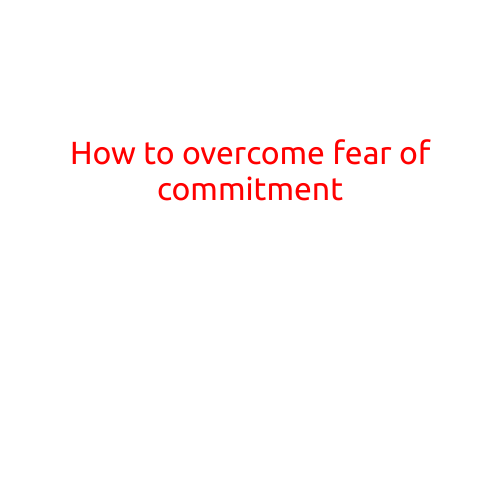
What is the Impact of Unresolved Past Traumas on Relationships?
Unresolved past traumas can have a profound and lasting impact on individuals, affecting not only their mental and emotional well-being but also their relationships with others. Trauma can be caused by a wide range of experiences, including childhood abuse, neglect, or domestic violence, and can lead to chronic stress, anxiety, and depression. When left unaddressed, unresolved traumas can also affect relationships in multiple ways, making it essential to understand and address these issues to maintain healthy and fulfilling connections with others.
How Trauma Affects Relationships
Unresolved past traumas can have a ripple effect on relationships, influencing everything from communication and trust to intimacy and conflict resolution. Here are some ways trauma can impact relationships:
- Difficulty with Emotional Intimacy: Individuals who have experienced trauma may struggle with emotional intimacy, finding it challenging to open up and share their feelings with their partner. This can lead to feelings of disconnection and isolation.
- Anxiety and Fear: Unresolved traumas can create anxiety and fear, causing individuals to become hypervigilant and constantly “on guard.” This can lead to a sense of constant tension and stress in relationships.
- Trust Issues: Trauma can erode trust, making it difficult for individuals to form and maintain healthy relationships. This can be particularly challenging for those who have experienced betrayal or abandonment.
- Reactivity and Defensiveness: Unresolved traumas can lead to reactive and defensive behavior, making it challenging to communicate effectively and resolve conflicts in a healthy manner.
- Difficulty with Boundary Setting: Individuals who have experienced trauma may struggle with setting and maintaining healthy boundaries, leading to feelings of overwhelm, resentment, and burnout.
- Self-Sabotaging Patterns: Unresolved traumas can lead to self-sabotaging patterns, causing individuals to unconsciously recreate negative experiences in their relationships.
The Impact of Unresolved Traumas on Partners and Children
Unresolved past traumas can also affect partners and children, even if they were not directly involved in the traumatic experience. Children, in particular, may be impacted by their caregivers’ unresolved traumas, which can lead to:
- Inversion of Roles: Children may assume caregiving roles to cope with their parent’s trauma, leading to feelings of responsibility and burden.
- Insecurity and Fear: Children may develop anxiety and fear due to their parent’s unresolved traumas, making it challenging for them to form secure attachments and develop healthy relationships.
Seeking Help and Healing
While unresolved past traumas can have a significant impact on relationships, it is essential to remember that healing and recovery are possible. Here are some steps individuals can take to seek help and healing:
- Seek Professional Help: Consult with a mental health professional who has experience working with trauma survivors.
- Therapy: Engage in trauma-focused therapies, such as cognitive-behavioral therapy (CBT) or Eye Movement Desensitization and Reprocessing (EMDR).
- Support Groups: Join support groups, either in-person or online, to connect with others who have experienced similar traumas.
- Self-Care: Practice self-care and engage in activities that promote relaxation and stress reduction, such as meditation, yoga, or art therapy.
- Education and Awareness: Educate yourself and others about the impact of unresolved past traumas on relationships and the importance of seeking help and support.
Conclusion
Unresolved past traumas can have a profound impact on relationships, influencing communication, trust, intimacy, and conflict resolution. However, with the right support, therapy, and self-care, individuals can work through their traumas and develop healthier, more fulfilling relationships. It is essential to prioritize trauma healing and seek help when needed to break the cycle of trauma and create a more secure, loving, and fulfilling life.





